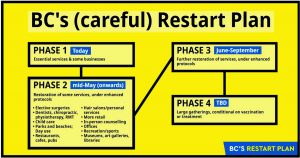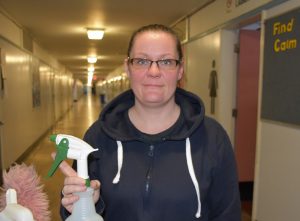
Message from K-12 Presidents Council President Warren Williams
It’s crucial that all CUPE locals have their site Health and Safety committees and representatives functional in all work locations. This is how we will ensure that we know what’s happening and are able to address problems.
As we return to classrooms, we must ensure that the workplace is a safe place for students and staff.
This bulletin provides info on how to work with different chemicals being used in B.C. schools.
The focus during this crisis has been frequent hand washing, avoiding touching your face, coughing and sneezing into your elbow, and staying home if not well. All of these personal responsibilities continue to be in effect.
As we return to work, please remember to contact your site Health and Safety Committee with any safety concerns.
Let’s be vigilant and strong to ensure the safety of all members and students in our schools.
In solidarity and safety,
Warren Williams
K-12 Presidents Council President
View the bulletin here.
Here is more information on B.C.’s Restart Plan.

 NEW WESTMINSTER—CUPE 409 President Marcel Marsolais said that reinstating daytime custodians during the COVID-19 pandemic underscores the important work they do, not only for those attending or working at child care learning centres in schools, but for everyone.
NEW WESTMINSTER—CUPE 409 President Marcel Marsolais said that reinstating daytime custodians during the COVID-19 pandemic underscores the important work they do, not only for those attending or working at child care learning centres in schools, but for everyone.